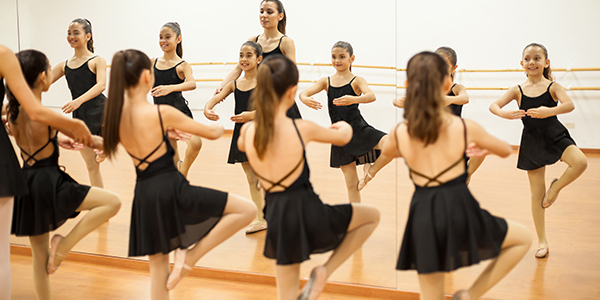
The Importance of Balance in an Athlete’s Life
Summary: To avoid burnout in young athletes requires promoting balance, positive reinforcement, and life lessons beyond sports. Parents should model healthy habits and a well-rounded lifestyle while highlighting the broader benefits of athletics, such as teamwork, time management, and handling pressure. Encouraging positive feedback over constant criticism helps maintain kids’ confidence and motivation.
Hernan Chousa is a former tennis pro and sports dad to a tennis player who is now playing at a Division 1 college.
His son started playing early, and burnt out at age 15. He quit tennis for two years, then started over because he wanted to win a scholarship to play in college. And that’s just what he did.
But too often, kids burn out and never go back, says Chousa. To help avoid burnout, parents can help their kids lead a well-rounded life, rather than focusing solely on sports.
When kids burn out–or long before they do– it’s important for parents to be good role models, and show that they lead balanced lives, says Chousa.
“The best thing we can do is be the best people, take care of ourselves, work on improving ourselves and having hobbies. If we focus on the kid’s sports, it’s too much pressure,” he says.
Sports is Just One Activity in the Life of Kids
Parents should point out to sports kids that athletics teach them important life skills, including time management, how to balance sports and school, how to deal with pressure and how to be part of a team.
“They have to see that side of the coin,” says Chousa.
For parents of kids who have high ambitions in sports and start to participate in high-level sports, Chousa suggests couples therapy. He has seen too many parents get divorced when their children don’t meet their sports expectations. Again, he stresses that parents, like their kids, need to seek balance.
“If you think your kid will make it in professional sports, you and your spouse need to go to a therapist or sports psychologist,” he says. “We need to deal with our business, our family, all the other tasks besides sports.”
Parents who fail to find balance and focus too much on sports hurt their kids, says Chousa.
When he was 15, he told his dad to stop coming to his matches.
“He was tough, all my life he was tough. When I came out of a match, he always saw the dark side, the mistakes. Once I beat the number one player in the world (under 18) and he saw the bad side,” Chousa recalls.
Meanwhile, he told his mother to attend his matches, but to refrain from talking.
“It’s good to focus on the good. For every negative comment, share five positive ones,” Chousa advises, sharing a strategy suggested by the Positive Coaching Alliance.
Avoid Burnout With a Balanced Lifestyle
1. Encourage a balanced lifestyle
Parents should help young athletes lead well-rounded lives, showing that sports are only one part of life. Focusing solely on athletics can create excessive pressure and increase the risk of burnout.
2. Model healthy habits and hobbies
Sports kids benefit when parents demonstrate self-care, personal growth, and hobbies outside of sports. Positive role modeling teaches kids how to balance training with other life priorities.
3. Emphasize life skills gained through sports
Parents should highlight how sports teach time management, teamwork, handling pressure, and balancing academics and athletics. Recognizing these lessons helps kids see the broader value of participation.
4. Focus on positive feedback and encouragement
Use a positive reinforcement strategy, such as sharing five positive comments for every negative one. Avoid overly critical feedback during games to boost confidence and prevent burnout.
You can listen to the entire interview with Chousa below:
Related Sports Psychology Articles
- How Impatience in Youth Sports Leads to Burnout
- Burnout in Young Athletes
- The Affect Injuries have on Self-Image
*Subscribe to The Ultimate Sports Parent Podcast
*Subscribe to Peak Performance Sports on Youtube
Download a free sports psychology report to improve your mental game!
Sports Psychology Coaching for Young Athletes

One-on-one mental performance coaching is the fastest and most effective method to improve your athletes’ mental game, boost their performance, and make lasting changes. And as a bonus, parents learn what to say to help young athletes feel confident and thrive in sports. Please call us at 888-742-7225 with your questions
FAQ: Preventing Burnout in Young Athletes
Q: What is burnout in young athletes?
A: Burnout occurs when young athletes feel mentally or physically exhausted from excessive focus on sports, leading to decreased motivation, performance, and sometimes quitting.
Q: How can parents help avoid burnout?
A2: Parents can prevent burnout by encouraging a well-rounded life, modeling balance, and showing that sports are only one part of their child’s overall development.
Q: Why is positive reinforcement important for young athletes?
A: Positive reinforcement builds confidence and motivation, helping athletes focus on achievements rather than mistakes, which reduces the risk of burnout.
Q: How can sports teach life skills beyond athletics?
A: Sports help young athletes develop teamwork, time management, goal setting, and coping with pressure, which are valuable skills for life outside of sports.
Q: Should parents limit criticism during competitions?
A: Yes, parents should focus on constructive feedback and highlight successes, aiming for multiple positive comments for every negative one to maintain a supportive environment.
Q: How can parents model a balanced lifestyle for their kids?
A: Parents can show balance by pursuing hobbies, self-care, and personal growth, demonstrating that life involves more than just sports.
Helping Sports Kids Avoid Burnout
Kids Sports Psychology expert Patrick Cohn, Ph.D. has helped athletes for over 35 years to enhance their performance. Dr. Cohn earned a master’s degree in sports psychology from CSUF and a Ph.D. from the University of Virginia, specializing in Applied Sports Psychology. Today, he is the president and founder of Peak Performance Sports, LLC in Orlando, Florida.
